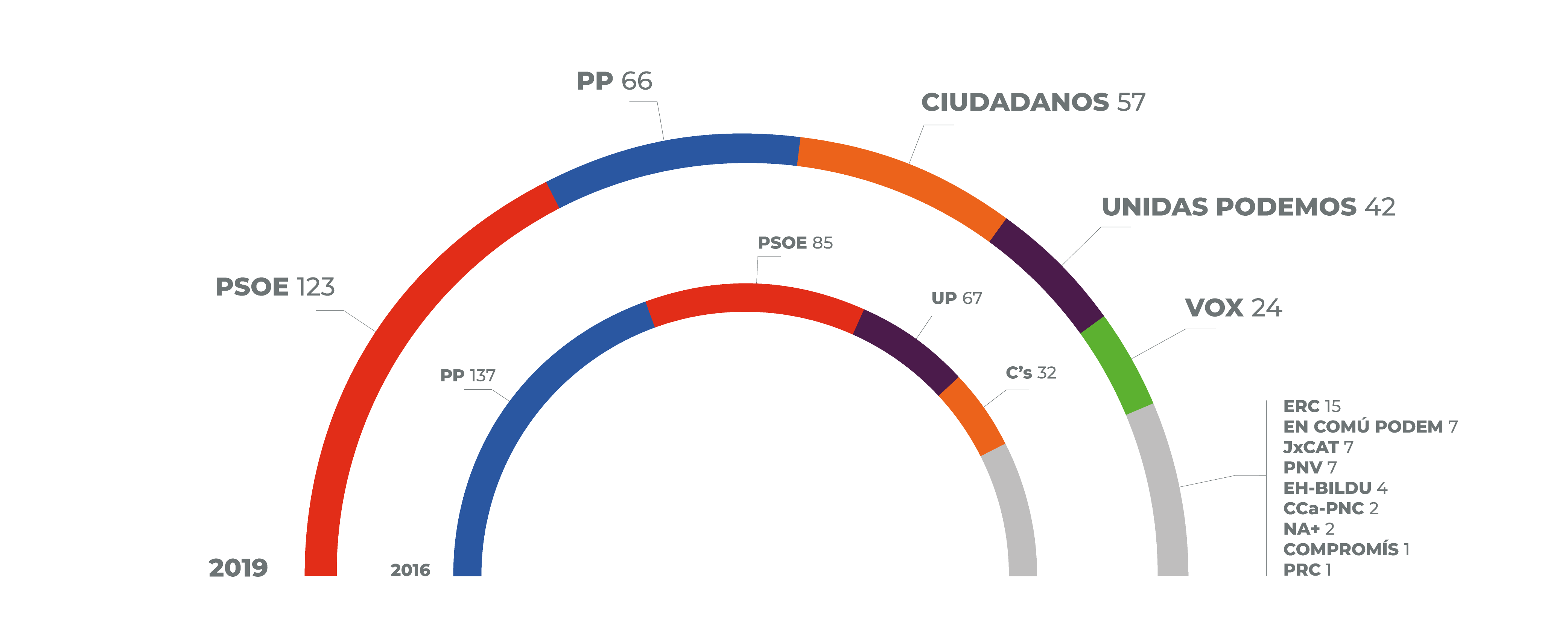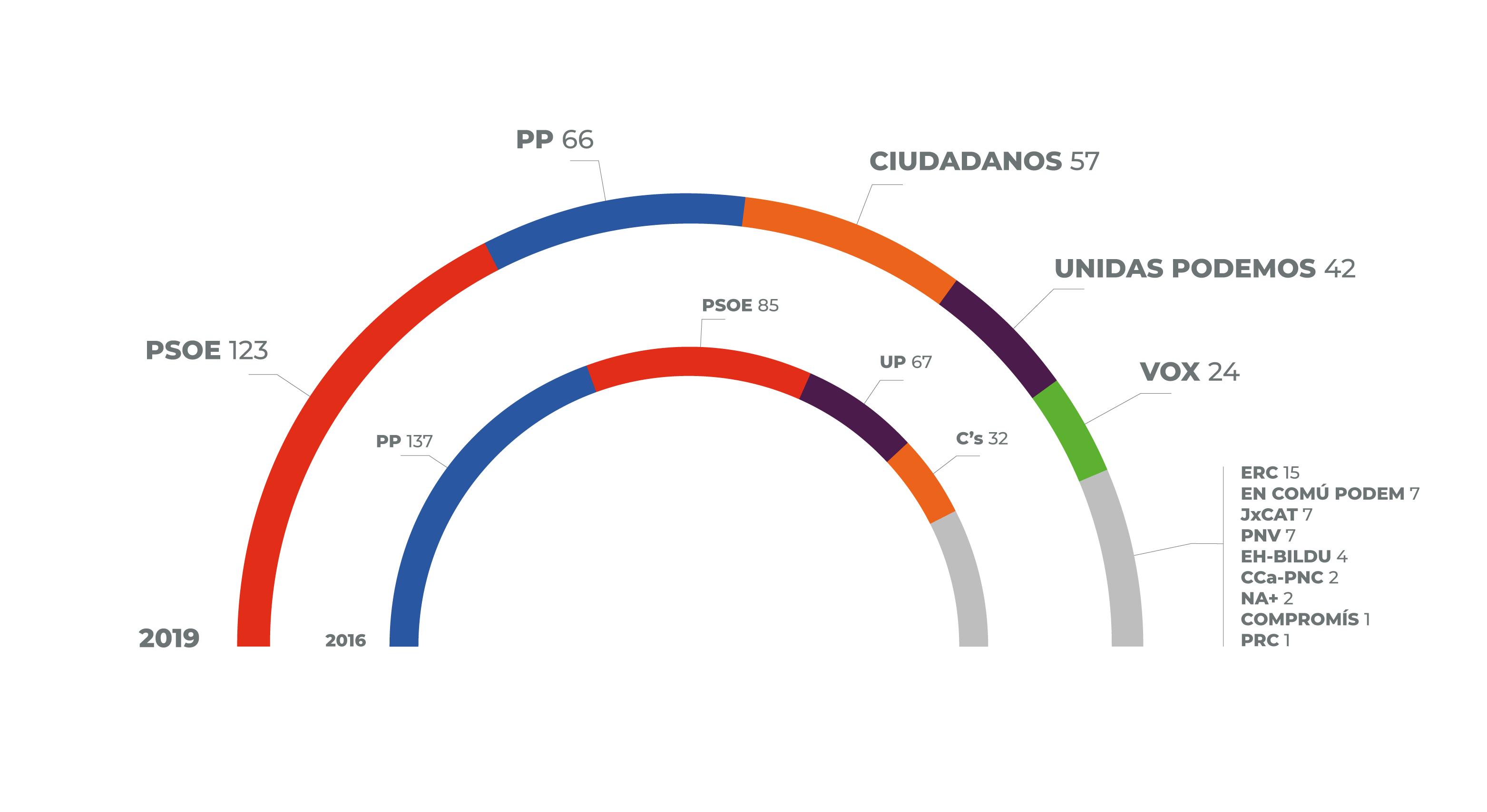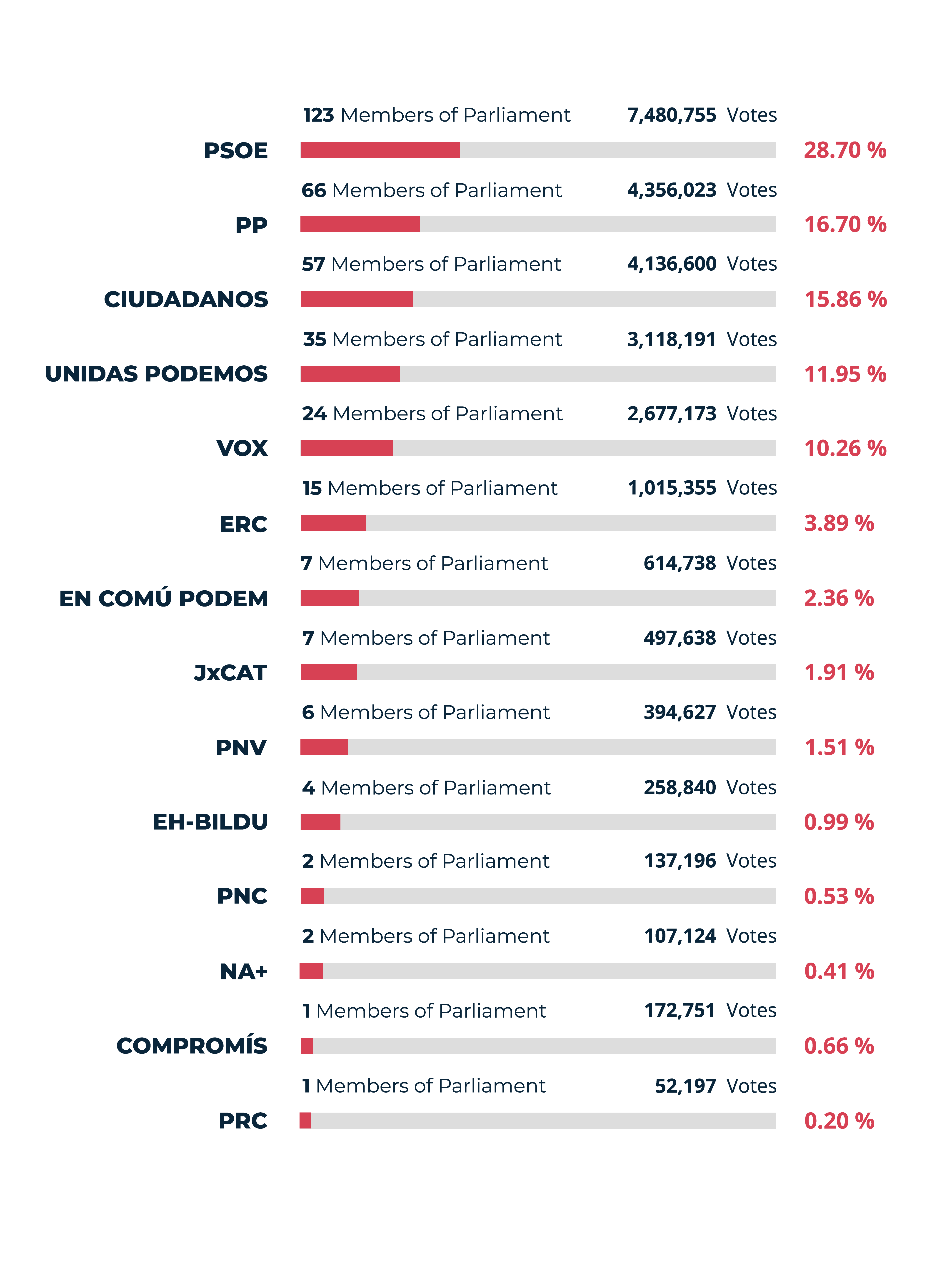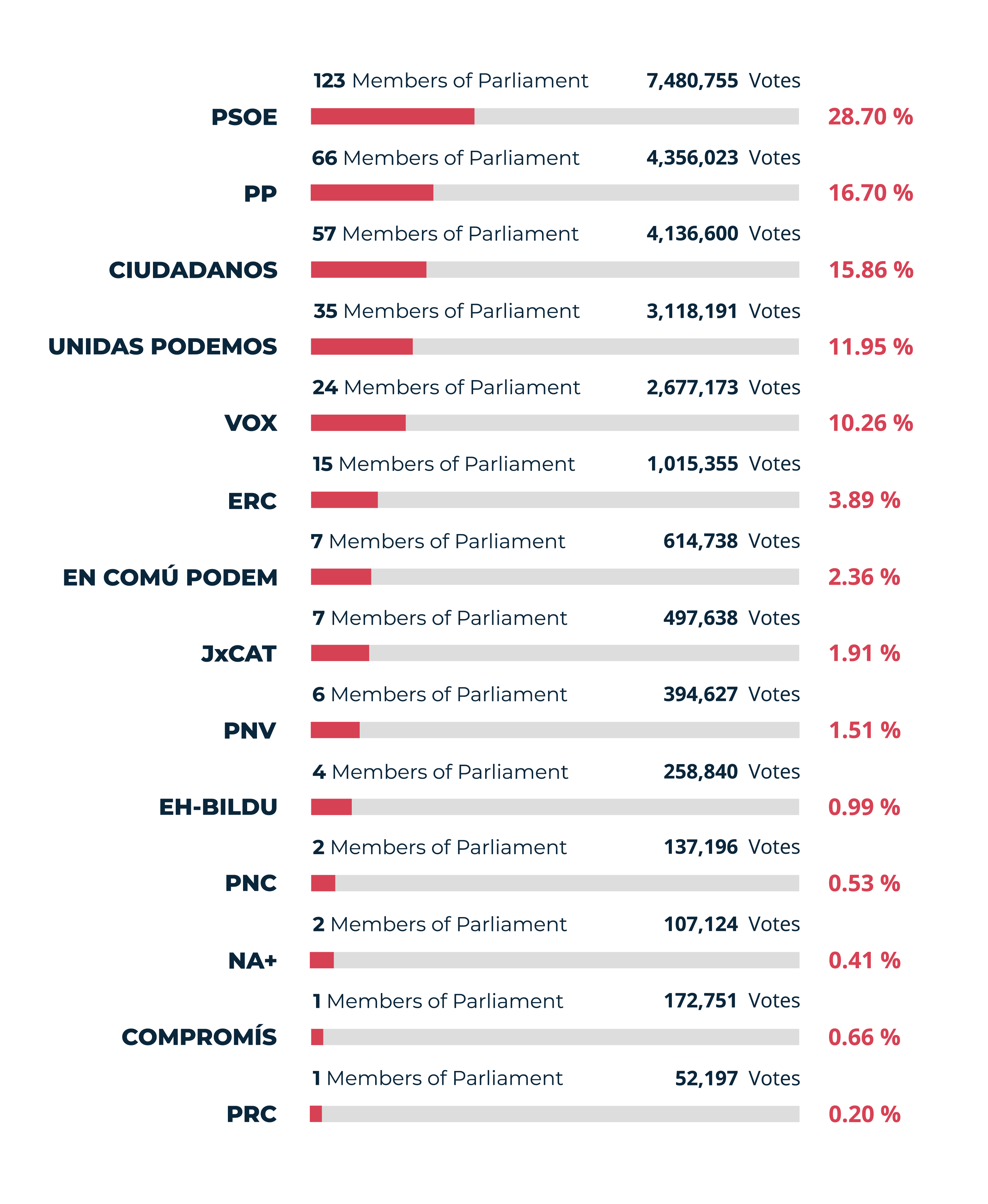Introduction and context
Pedro Sanchez, secretary-general of the center-left Spanish Socialist Worker Party (PSOE), took office as Prime Minister on June 1, 2018. He took this position following a censure motion against sitting Prime Minister Mariano Rajoy of the center-right Popular Party (PP). In the nine months that Sanchez has headed the government, legislative activity has been limited to completing a few bills that were already being processed and governing through Royal Decrees, a legislative tool which, according to Spanish law, should be reserved for urgent matters.
The 2019 budget was rejected in February, though approving the yearly budget is one of the Spanish government’s most important duties. Its rejection meant the majority who voted for the censure motion could not offer a practical way to complete the legislature. PSOE and Unidos Podemos had signed a bill without the support of the two Catalan independence parties, PDeCAT and ERC.
Dec. 2, 2018, Vox emerged as an influential force in Andalusia’s parliament, changing the electoral landscape in Spain. This party joined the extreme right in Europe, alongside France’s National Rally party. In these elections, a high percentage of voters from the left abstained, opening the door for the three right-wing parties (PP, Ciudadanos and Vox) to put an end to 35 years of socialist governance in the region.
The possibility of seeing similar political shifts on a national level led to a massive mobilization of left-wing voters. For the PSOE, this particular debate was a convenient distraction from negotiations with Catalonia’s independence parties, another topic that divided voters and could have led to abstention, similar to what occurred Dec. 2.
Due to the budget bill’s failure Feb. 15, Pedro Sanchez announced elections would occur April 28. Two weeks later, March 1, he dissolved Parliament, including both the Congress and Senate.
Election results
Last April 28, general elections were held in Spain. The results of elections produced the following breakdown of seats in Congress:





In the Senate, the PSOE won an absolute majority. This chamber has less legislative power than Congress, but still has two key legislative responsibilities. The Senate approves the spending cap, a step toward approving the budget and reducing deficit, as required by the European Union, and is responsible for applying Constitutional article 155, which confers the ability to suspend a regional government, as occurred in Catalonia in 2017.
With these results (after close to 100 percent of votes have been counted), we can offer some conclusions:
- Prime Minister Pedro Sanchez has the best possible situation to run for office again. Even with these new seats, however, he will not find it easy to earn sufficient support in the parliamentary confirmation vote, as he still must secure the vote of the independence parties.
- The Popular Party has suffered a significant loss of votes, losing more than half of its members of parliament.
- Ciudadanos (center-right liberal) has gained support and is now less than one point behind the Popular Party, with only 8 fewer members of parliament.
- Unidos Podemos (leftist) lost a significant portion of its representation, although the drop has been less than predicted.
- Vox (new conservative right party) has become the fifth-largest parliamentary force.
Possible governance scenarios
If we consider each party’s rhetoric to be unchangeable, the potential results for the country’s governability would, hypothetically, be:
- A repeat of the censure motion’s majority, with PSOE, UP and the necessary nationalist seats. Whether it will be a coalition government or one run by just the PSOE remains to be seen.
- Despite the public rejection of Ciudadanos, a second option could be PSOE and Ciudadanos.
- There is a possibility of new elections this Autumn after an unsuccessful negotiation. Should this happen, it seems likely the outcome would, again, lack a clear majority, and could perhaps strengthen the major parties in each bloc.
In coming weeks, informal talks will begin between party leaders to form a majority before the Congress is constituted May 21. In this negotiation, it is not expected to be complicated for PSOE and Podemos to gain control of the bench or prevent a socialist from becoming president of the chamber. The results in the municipality of Barcelona will be especially relevant. If there is an agreement between left-wing forces, it could open up a new electoral avenue for the Catalan region. Instead of a pact between pro-independence parties, one between ERC, Comuns and PSC could ease relations with the Spanish government.
Challenges for the new government
In the short term, there are three principle matters the new government must manage:
- A formula that allows it to govern
- Institutional tensions with the regional government of Catalonia
- Economic slowdown
The 13th Legislature will be marked by uncertainty. The end of the positive economic cycle, gradual rise in interest rates in the Eurozone and less favorable international economic scenario will define the environment in which this divided Spanish government must operate. A Spanish government that lacks a solid parliamentary majority will have to work in coalition with some key partners (Unidos Podemos) that will want to impose their reform agenda.
In addition to the three short-term challenges mentioned above, there are nine key issues in the medium-term:
- Labor market, with a focus on reversing the labor reform approved by Mariano Rajoy’s administration.
- Pensions.
- Energy transition.
- Industrial and SME policies.
- Financial system.
- Overhauling regional finances.
- Policy on Europe.
- Incorporating European directives into Spanish law.
- Spain’s historical legacy, including matters such as the exhumation of Francisco Franco.
In addition to these issues, there are others always on the government’s agenda since its transition to democracy. The government must be prepared to address issues such as the sustainability of the public health system, improvements in education, adapting to the demands of a digital society and the reform and modernization of the justice system.
Authors
José Ramón Gallego



